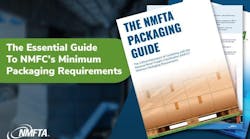We've got a long way to go. Economic news during late March and early April gave some reason to expect that recovery was near. This is a bit like Lucy holding the football for Charlie Brown.
Even more so these days, we have to be careful of the news that is coming out of the nation's capital. Through most of February, we had an administration that was bemoaning the fiscal disaster it inherited and squabbling about how bad it was likely to get before we would see a recovery. Then the tune changed, and we were told that improvement was coming sooner than anyone expected.
If I follow Washington's lead and never tell you when the expected time of recovery is, I can continue to tell you that the recovery is coming sooner or later than expected. I'll let you know when I am correct. Unfortunately, my clients don't allow me that luxury. I have to pick a specific date with levels of output, employment and demand for equipment. I don't get elected every four years; I get elected every contract renewal, whenever that date is.
More troublesome to me is that of the cast doing the announcing in Washington. The two I trust the most are silent about the recovery and its timing, yet they are experienced economists with outstanding backgrounds of serving prior presidents and being right even when it wasn't politically advantageous to do so. That silence speaks volumes to me.
According to the Federal Reserve, household wealth declined by $11 trillion last year, and we expect a $2 trillion stimulus to turn this economy around. By the way, we won't spend the full $2 trillion for three years, given the projected lead times for most of the construction efforts. At the same time, we will raise taxes (excuse me, fees) at all levels of government to help replenish the funds already overdrawn.
The $11 trillion decline can be split into two major groups: Housing lost $2.5 trillion, and stocks lost $8.5 trillion. The former decline in value would normally not affect consumption as much as it did this time around except that there were far reaching consequences associated with that loss. Holders of mortgages went bankrupt, and the financial system went into hibernation as the threat of Federal oversight became a reality. That curtailed personal and business loans that would have led to the purchase of goods and services, which continues as you read this article.
The loss of equity values had a more direct effect on consumption as the near-retirement generation looked to replace those lost funds vaporized from retirement accounts. That has never happened to this extent — and we will see two lingering consumer activities that will curtail consumption. First, consumers will act to replenish their household wealth so that they will be able to retire, since Social Security is being discussed as a shell game these days. Second, we will continue to work later in life than we anticipated. That leaves little room for others to take our place soon, thereby serving to keep wages and disposable income lower than they would have been. Yet, we seem to be looking for ways to solve this by creating jobs that don't exist with money we don't have. That is not sustainable growth if we have to pay out of the future earnings of our households, which are already on shaky ground.
For the past 30 years that I've been analyzing trucking, I don't think I used the word trillion as many times in a report as I have in this article. Not once was it used in a positive way.


